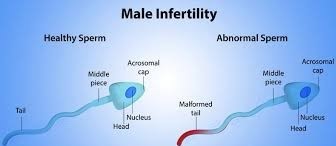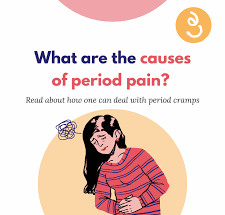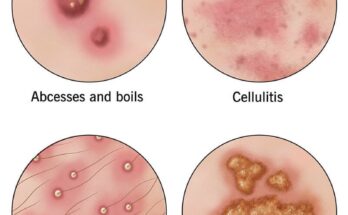Infertility is a sensitive and often misunderstood issue that can affect both men and women. However, when it comes to male infertility, many people are unaware of how significant a role men play in the process of conception. For couples struggling to conceive, male infertility is often an overlooked factor, yet it accounts for about 40-50% of infertility cases. In this blog post, we’ll dive deep into male infertility, its causes, prevention strategies, and introduce Spidex21 and Faforon as potential solutions for those seeking a natural remedy for this challenging condition.
What is Male Infertility?

Male infertility refers to a condition where a man has a reduced ability or inability to contribute to conception. It is diagnosed when a man’s sperm count, sperm quality, or the ability to produce viable sperm is compromised. This can result from a variety of issues that impact the production of sperm, their quality, motility (ability to swim), or even their ability to fertilize an egg.
It’s important to note that male infertility is not just about sperm count. Even if a man has a normal sperm count, the sperm might still be of poor quality, have abnormal shape, or lack the ability to move effectively towards the egg, preventing fertilization.
Causes of Male Infertility
Male infertility can result from several factors, ranging from lifestyle choices and physical conditions to environmental and genetic factors. Understanding the causes is essential in identifying the right solution. Let’s take a closer look at the most common causes:
1. Low Sperm Count (Oligospermia)
One of the most well-known causes of male infertility is a low sperm count. When a man produces fewer than 15 million sperm per milliliter of semen, it may be challenging for the sperm to reach and fertilize an egg. Low sperm count can be caused by factors like stress, poor diet, excessive alcohol consumption, and smoking.
2. Sperm Motility Issues (Asthenozoospermia)
Even if the sperm count is normal, poor motility (the sperm’s ability to swim effectively) can prevent sperm from reaching and fertilizing the egg. This is a common cause of infertility in men, and it can be caused by infections, hormonal imbalances, or lifestyle factors.
3. Varicocele
Varicocele is a condition where the veins within the scrotum become enlarged. This condition affects sperm production and can lead to infertility by increasing the temperature around the testicles, which impairs sperm production. This is one of the most treatable causes of male infertility.
4. Ejaculation Issues
Problems with ejaculation, such as premature ejaculation, retrograde ejaculation (where sperm enters the bladder instead of being expelled), or absence of ejaculation, can affect fertility. These issues can stem from conditions like diabetes, spinal cord injuries, or surgeries involving the prostate or bladder.
5. Genetic Factors
Certain genetic disorders like Klinefelter syndrome, Y chromosome microdeletions, or cystic fibrosis can cause infertility by affecting the development of sperm cells. Genetic factors can lead to non-obstructive azoospermia, where no sperm is found in the semen.
6. Hormonal Imbalances
Hormones play a crucial role in sperm production. A decrease in the levels of testosterone or an imbalance of other hormones (such as luteinizing hormone and follicle-stimulating hormone) can result in low sperm count or poor-quality sperm.
7. Infections
Infections in the reproductive organs, such as prostatitis (inflammation of the prostate gland), sexually transmitted infections (STIs), or mumps, can damage the sperm-producing structures of the testicles and lead to infertility.
8. Lifestyle Factors
Poor lifestyle choices like smoking, excessive alcohol consumption, drug abuse, poor diet, lack of exercise, and exposure to environmental toxins (e.g., pesticides, heavy metals, radiation) can reduce sperm quality and quantity. The rising levels of stress in modern life have also been linked to decreased fertility in men.
Prevention and Management of Male Infertility
While not all causes of male infertility can be prevented, there are several lifestyle changes and proactive steps men can take to improve their fertility health.
1. Adopt a Healthy Diet
A balanced diet rich in antioxidants, vitamins, and minerals plays a critical role in male fertility. Foods like berries, nuts, leafy greens, and lean proteins can improve sperm quality. Zinc, folic acid, and vitamin C are especially important for maintaining healthy sperm.
2. Exercise Regularly
Regular physical activity helps maintain a healthy weight and hormonal balance. However, excessive exercise, especially high-intensity workouts, can sometimes harm sperm quality, so it’s important to find a balanced routine.
3. Avoid Smoking and Excessive Alcohol Consumption
Smoking and excessive drinking have been linked to reduced sperm quality and function. Quitting smoking and limiting alcohol consumption can significantly improve fertility in men.
4. Manage Stress
Chronic stress can negatively impact hormone levels, leading to a decrease in sperm production and motility. Practicing mindfulness, yoga, and other stress-reduction techniques can be beneficial.
5. Maintain a Healthy Weight
Obesity and being overweight can negatively affect sperm count and motility. Maintaining a healthy weight through diet and exercise can help improve fertility.
6. Avoid Exposure to Toxins
Minimize exposure to environmental toxins, such as pesticides, chemicals, and heavy metals, which can damage sperm. Men should also avoid prolonged exposure to high heat (e.g., hot tubs, saunas) as it can affect sperm production.
7. Consult a Healthcare Provider
If male infertility is suspected, seeking medical advice is essential. A healthcare provider can conduct a variety of tests, including semen analysis, hormonal testing, and genetic screening, to identify underlying causes.
Innovative Solutions: Spidex21 and Faforon

While lifestyle changes and medical treatments can help in many cases, some men may still struggle with infertility despite their best efforts. For those looking for a natural alternative, Spidex21 and Faforon are two promising supplements that have gained attention for their potential to enhance male fertility.
Spidex21: A Comprehensive Solution for Male Fertility
Spidex21 is a natural supplement designed to address multiple aspects of male fertility. It works by promoting optimal sperm production, improving sperm quality, and enhancing motility. Spidex21 contains a blend of potent herbs and nutrients known to support reproductive health. Some of its key ingredients include:
- Maca Root: Known for boosting testosterone levels and improving sperm count and motility.
- Zinc: Vital for the production of sperm and for maintaining healthy testosterone levels.
- L-arginine: An amino acid that improves blood flow to the reproductive organs, promoting healthier sperm.
- Tribulus Terrestris: A plant extract used to improve libido, sperm count, and motility.
Spidex21 helps regulate hormone levels, enhances semen volume, and improves sperm quality, making it an ideal solution for men facing challenges in conceiving.
Faforon: Targeted Support for Male Reproductive Health
Faforon is another supplement designed to specifically address male infertility by improving sperm count, motility, and overall reproductive health. It is formulated with a combination of powerful herbal extracts and vitamins that nourish the male reproductive system. Key ingredients in Faforon include:
- Ashwagandha: An adaptogenic herb known for reducing stress and improving sperm quality.
- Fenugreek: A natural herb that boosts testosterone levels and promotes sperm production.
- Vitamin E: Known for its antioxidant properties, vitamin E helps protect sperm from oxidative damage.
- Selenium: A powerful antioxidant that improves sperm motility and overall fertility.
Faforon not only improves sperm parameters but also helps in boosting overall vitality and reducing the psychological stress that often accompanies fertility challenges.
Conclusion
Male infertility is a complex and multifaceted issue that requires a comprehensive approach. While lifestyle changes like maintaining a healthy diet, exercising, managing stress, and avoiding harmful substances are key in improving fertility, certain supplements like Spidex21 and Faforon can provide valuable support. These natural solutions work synergistically to enhance sperm quality, increase motility, and support overall reproductive health.
If you’re struggling with male infertility, consider speaking with a healthcare professional to explore the best treatment options for you. Supplements like Spidex21 and Faforon could be the missing piece in your fertility journey, helping you and your partner achieve the dream of parenthood.
Stay proactive, and remember that the path to fertility doesn’t have to be walked alone – there are solutions out there, and with the right guidance and support, you can overcome infertility challenges and improve your chances of conceiving.


